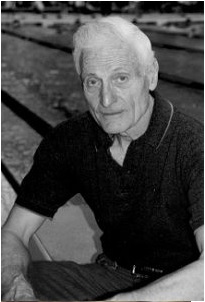What are the qualities of a good coach? A good coach listens and has great communication skills. He or she builds rapport and is motivating and inspiring. A good coach has curiosity, flexibility, and courage. The good coach recognizes that everyone is different and have different needs, and with the flexibility to react to those differences. Coaches must have the courage to have a strong belief in their self and a strong determination to do what is best for their athletes. A good coach believes that his or her athletes are capable of reaching the goals that are set with the ability to individualize their training and approach to reach those goals.
Much is demanded of the coach to become a good coach. Strive for clarity and keep it simple when teaching. Build one thing at a time. Allow for failure but it doesn’t have to be called failure. I always called it temporary non-success. Failure is necessary for great success. This has been proven countless times. Thomas Edison and the light bulb is the often quoted example. The greatest swimmer on my team swam her nemesis 32 times and failed each time, until the 33rd attempt at the Olympic Games and won. The point is to learn from temporary non-success and to be persistent. Coaches must be able to admit mistakes. Take responsibility and be a coach, not a critic, when addressing your swimmers. I believe that coaching demands that the coach stay in shape by proper nutrition, sleep, and exercise. Coaching swimming is physically and mentally demanding. Being fit will help to keep coaches in the profession.
Consider too that coaching draw out rather than puts in. It develops rather than imposes. It reflects rather than directs. It is non judgmental and it helps young athletes to grow in a variety of areas.
A coach must raise the bar or standards that the swimmers and those around them have set. Successful coaches challenge swimmers. Coach Dick Jochums once told me that Don Gambril’s greatest coaching ability was his ability to convince swimmers that they could attain great successes. He could talk directly to a swimmer about setting new world records and have the swimmer believe it. Coaches that haven’t experienced great success might find this difficult, but bring it down to your level. State records, team records, and lofty new personal bests are targets that all high school coaches can use.
Use the Coaching 101 theory. Organize, observe, and instruct during the training sessions. Use the basics constantly and continuously.
I was attracted to an article written by Coach Nort Thornton in a recent ASCA Newsletter. The title was intention vs. effort. Nort quoted from his sources on intention. I had recently watched Wayne Dyer on public television present a fascinating program on the “Power of Intention”. I followed up by reading his book of the same title. I had seen and read this source prior to reading Nort’s article written for ASCA. Intention is not just another name for purpose, and this was confusing to me at first.
Nort Thornton emphasized that things rarely just happen. They need to be intended to set up your mental focus on what you intend to have happen. People driven by intention are described as having a strong will that won’t permit anything from achieving their inner desire. Imagine that intention is not something you do, but rather a force that exists in the universe as an invisible field of energy. This is all from Nort’s article and continues until I indicate otherwise.
Intention is a force that we all have within us. There is nothing exclusive about the power of intention. You get what you intend by being in harmony with the power of intention. Self importance is our greatest enemy. Self importance requires that you spend too much time being offended by something or someone. Self confidence is important but don’t make the mistake of identifying yourself as your body, or achievements, and/or your possessions.
Nort’s ASCA article pointed out the ways to stay connected to the power of intention. (1) Stop being offended. You can’t control the actions of others. (2) Let go of judgment. People aren’t winners or losers. Avoid the assumption that the opposite of winning is losing. (3) Let go of a need to be right. (4) Let go of having to be superior. (5) Let go of the need to have more. (6) Let go of your reputation. Your reputation isn’t located in you, but in the minds of others. (7) Stay on purpose. Detach from the outcome, and take responsibility for what resides within you – your character.
Be aware of low energy and resolve to function in a high energy level. Every thought that you have has an energy level that will strengthen or weaken you. People who live their lives connected with the field of intention are connectors who have made themselves available for success. Connectors are highly inspired and inspiring people. Every swim coach should be a connector. This sums up the high points of the Nort Thornton article.
My first thoughts about the “Power of Intention was that it was about purpose and goals. I changed that thought as I read the book. I thought that this is great stuff. It is intended that we all live wonderful and achieving, contributing lives. The power of intention is the power to expand and increase all aspects of your life. Now I find this truth after reaching my upper 70’s and being retired from coaching. However you coaches still reading this, do have the opportunity to make the power of intention work in your coaching.
How does this affect the swimming coach? Cooperating with the power of intention, through yourself and everyone you encounter, can only expand on beneficial results. (1st) There is unlimited abundance in the power of intention. Most of us have been taught in terms of limitations. There are no limits to our potential in intention. (2nd) There is receptivity in the power of intention. We are all waiting to be called into action. We only need to be willing to recognize the call and to receive it. To be unreceptive is to deny yourself access to the power of intention.
Somewhere buried deep within each of us is a call to purpose. When inspired by great purpose, everything will begin to work for you. Purpose isn’t about what you do but how you feel. “Change the way you look at things and the things you look at will change”. Coaches connected to the power of intention are unique individuals who have made themselves available to success.
Coaches who are connectors are highly inspired people. They have a strong sense of their own destiny. They live on purpose and are not distracted by their ego. They have high energy and avoid low energy thoughts. Connectors never know enough. They are always inquisitive and always expanding their horizons. They think from the end and experience what they wish before it is attained.
Be willing to change the way you look at things and the things you look at will change. Your athletes and yourself will benefit.


